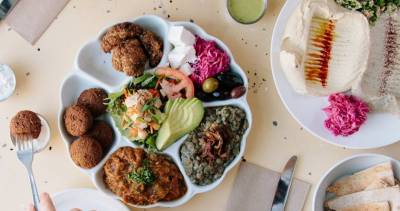On Nurturance and Vulnerability in Academic Life
SFU Harbour Centre, 515 W. Hastings, Vancouver Location: room 7000, SFU Harbour Centre. Both the building and room are wheelchair accessible.
Sponsored by SFU's Institute for the Humanities.
This event will take place on the unceded Coast Salish territories of the Musqueam, Squamish, and Tsleil-Waututh peoples.
Event is FREE and open to the public. If you would like to donate to the Institute to help fund future events like this one, please visit http://www.sfu.ca/humanities-institute/donate.html.
ASL requests must be submitted at least 3 weeks prior the event to insthum@sfu.ca.
ON NURTURANCE AND VULNERABILITY IN ACADEMIC LIFE
In February 2016, a blog post called "The Opposite of Rape Culture is Nurturance Culture" went globally viral. The article saw 300,000 views in its first week and launched the Nurturance Culture blog into a sustained global following. As the blog passes the million visits mark, read in 189 countries, it seems safe to say that something about nurturance struck a chord. This talk expands upon a question at the essay’s close: what would it look like for us to be welcome in the world as our whole selves?
In particular, this talk will explore Nurturance Culture’s relevance to academic knowledge production. Incorporating embodied practices from the Work That Reconnects and other somatic tools, we will examine this question by looking at three interrelated areas: first, what would a research community organized through Nurturance Culture feel like, sound like, look like? Next, how can those with significant structural power within the academy nurture those whose social position gives them insight into interlocking systems of race, gender, class, ability, who may come to this work with more epistemic than material or social privilege? And finally, if it is indeed the case that compassion for self and compassion for others grow together and are connected, what might such an awareness bring to those who find their hearts feel oddly empty even when CVs are full? In short, how might the cultural intervention posed by the idea of Nurturance Culture alter how we come to academic life?
SPEAKER
Naava Smolash holds a PhD in English from Simon Fraser University focused on race theory. Her essay "The Opposite of Rape Culture is Nurturance Culture" is used in counselling centres and university classrooms worldwide and has been translated into multiple languages. Her writing has appeared in academic and popular publications including Studies in Canadian Literature, West Coast Line, Briarpatch, and the University of Toronto Quarterly's special issue Discourses of Security, "Peacekeeping" Narratives and the Cultural Imagination in Canada. She has been a community organizer for over fifteen years, and was a member of the No One is Illegal-Vancouver collective from 2005-2008, and the Media Democracy Day-Vancouver collective from 2008-2010. Current projects include a book on Nurturance Culture and a speculative fiction novella entitled Cipher. She teaches in the English department at Douglas college, and lives halftime in Montreal.
Puung image used with permission. See more here: http://www.grafolio.com/puuung1/illustration.grfl
Places to go nearby approx. 15 minutes away





















